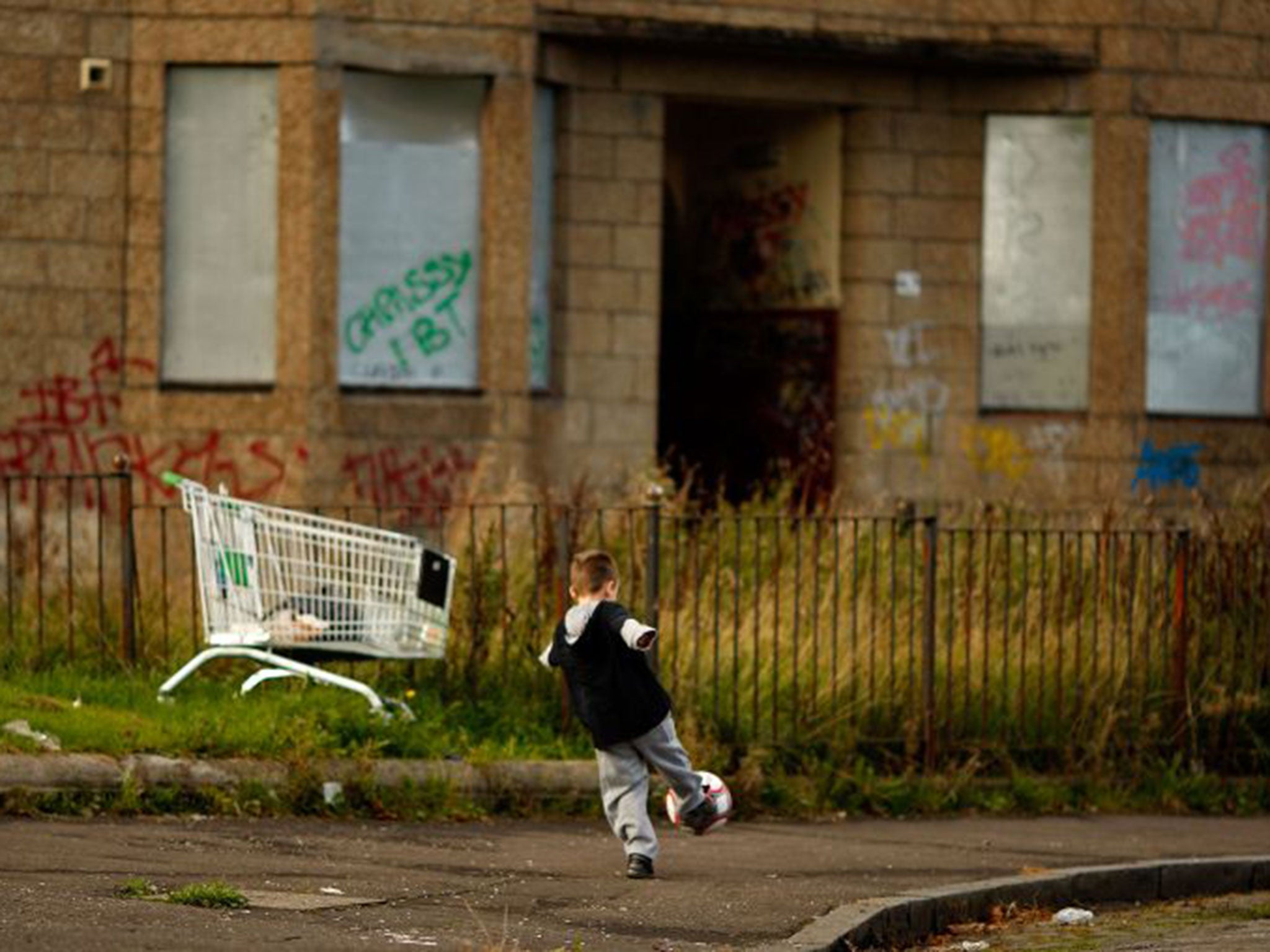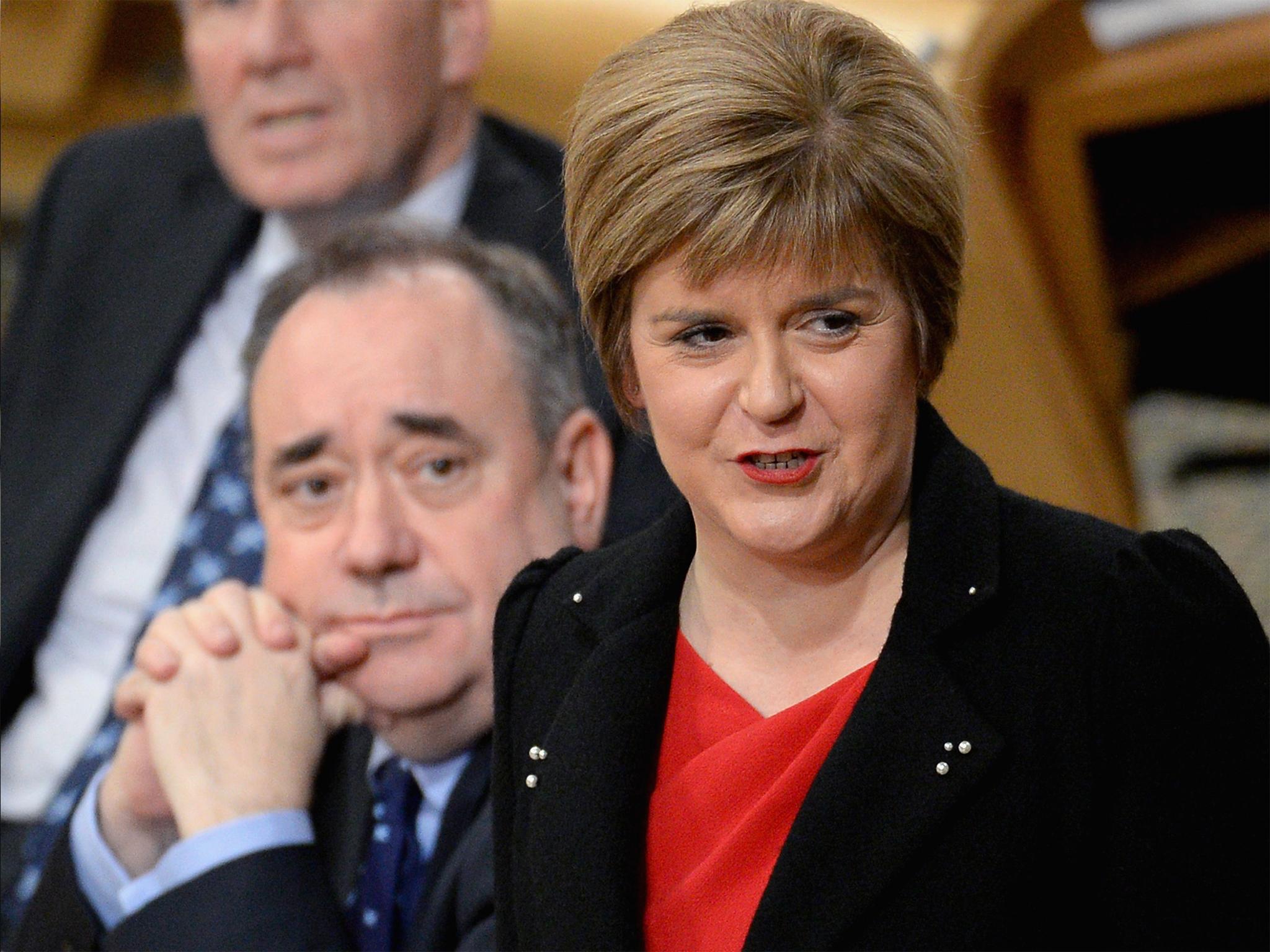Scotland's child poverty levels so severe teachers are sent advice on spotting malnourished students
Country’s largest teaching union draws up guidelines to help 'poverty-proof' classrooms

Child poverty in Scotland is now so severe that teachers are being sent advice on how to spot if a child in their class is going hungry, amid evidence that the problem is having an increasingly serious impact on education.
The new guidance, which will be distributed to schools and colleges across Scotland next week, warns that the issue of hunger among pupils is “moving from the exceptional to the more commonplace” as families struggle to make ends meet.
The advice has been drawn up by the Educational Institute of Scotland (EIS), the country’s largest teaching union, after a survey of 300 schools and colleges suggested that teachers are increasingly having to help underfed pupils. It is the first time that a section on hunger has been included in the guidance.
“Pupils may appear pale, fatigued, irritable or lacking in concentration, or complain of headaches or feeling unwell,” it states. “While there can be other reasons underlying such signs, for a growing number of children and young people in our schools and colleges today, the reason will be hunger.”

Teachers who suspect that a child may be going hungry should include them in morning breakfast clubs and post the details of nearby food banks on school notice boards and websites, so their families can seek help, the guidance says.
More than 222,000 children in Scotland are currently described as being in poverty, but the EIS warned that the number would rise if the Government’s “austerity agenda” continued. “Schools and colleges are part of society, and so are not immune from the problems of that wider society,” said the union’s general secretary Larry Flanagan.
The EIS said the aim of the new guidance was to give practical advice to teachers, allowing them to “poverty-proof” their classrooms. The 20-page booklet, entitled Face up to Child Poverty, also offers advice on school uniforms, field trips, homework and class equipment – all of which can be problematic for impoverished children and their families.
Some pupils may have “no option” but to wear the wrong type of clothes to school if their parents cannot afford the correct items – and may not feel comfortable telling their teachers why they broke the rules, it says. Schools are also advised to ensure uniforms are as inexpensive as possible and set up clothes exchanges.
Iain Gray, Scottish Labour’s opportunity spokesperson, said the new guidance painted a “damning picture” of the impact of poverty on schools. “In a well off 21st century country some of these findings are shameful, but they will not surprise anyone who deals on a day to day basis with the growth of food banks and the impact of the Tory government’s welfare reforms,” he added.
A Scottish Government spokesperson said ministers were committed to tackling poverty "head on" and "welcomed" the new advice to teachers. “We have invested £296m in welfare mitigation measures and around £329m over two years to expand free early learning and childcare," they added. “But we do this against a backdrop of a UK Government which is trying to change the definition of poverty, continues to introduce policies and implement cuts that will have a devastating impact of children in Scotland.”
Notes from teachers
* “Children attending school feeling hungry and having had very little the previous night. These pupils cannot think of working because of hunger.”
* “I recently ran a theatre trip and, of the 50 pupils I took, six could not afford the £8 ticket (not including the pupils we knew would have to be subsidised). None of these pupils were your typical ‘deprived’ pupil – all high achieving pupils who were mortified at the thought of admitting that £8 was a big deal to their families. There must be thousands slipping through the net.”
*“Increase in parental depression. Increase in children discussing ‘getting money tomorrow’ and ‘getting food on Friday’.”
* “Informally and discreetly, some teachers will provide very good quality clothes and present them to particular parents as a favour to the teacher: ‘Can you use these? My child has taken a stretch and I hate to see them going to waste.’ etc.”
* “Children dreading non uniform days due to lack of good casual clothing (knowing their peers will have this).”
* “We have expanded our breakfast club and provide toast at interval to help support children who have not had breakfast. Teachers always try to be aware of who is in need and try to make sure they have the basics in school by providing warm jackets and uniforms donated by parents whose children have outgrown them.”
Join our commenting forum
Join thought-provoking conversations, follow other Independent readers and see their replies
0Comments